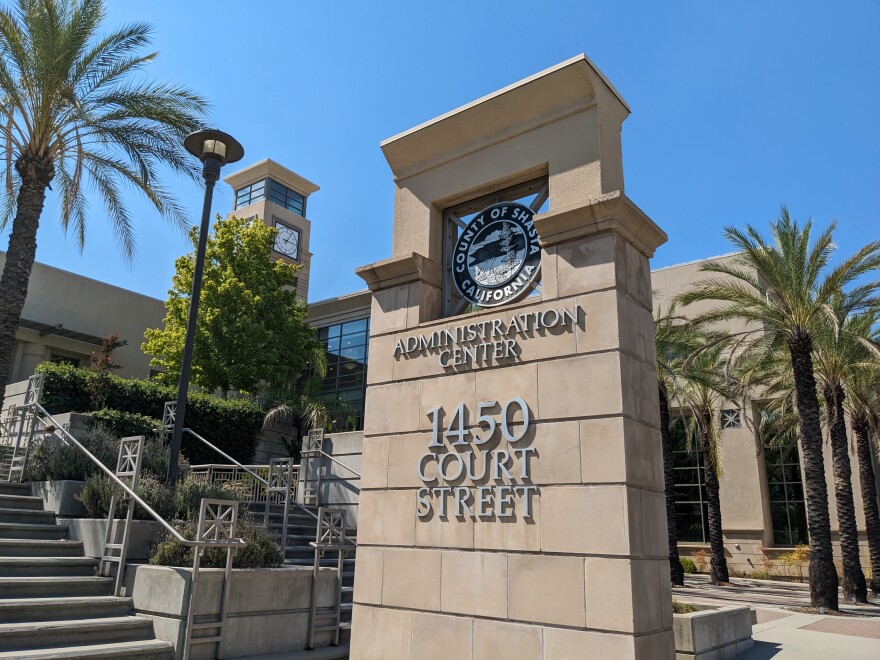New policies released on July 26, clarified by the county this week, give the option for press to attend supervisor’s meetings inside a media room apart from their usual media section in the chambers where the public sits. The media room is separated by glass from the chambers but includes audio from meeting microphones.
According to the new policy, any journalist not in that room may be asked to leave if the chambers are cleared due to a disruption, such as a protest. That could restrict journalist’s ability to cover those incidents, including police actions, if they are not already in the newly designated media room. According to a statement from Shasta County, if the public is cleared from a meeting then entry into the media room will not be permitted until the board reconvenes.
The new policy could lead to a violation of California’s Brown Act, which guarantees public access to meetings, according to the nonprofit First Amendment Coalition’s legal director David Loy.
“Everything depends on circumstances. But if the room is clear and the meeting continues in session, then the press has to be allowed to remain to cover the meeting,” said Loy.
Supervisor Kevin Crye has come out in support of the new rules, which were put in place by the county, rather than the board itself. Board members Mary Rickert and Tim Garman are critical of the updated policy.
“I’ve never heard of anything like this. I don't know why it's necessary. I think the Brown Act has clear rules in place. And I don't understand the need for this separate policy,” said Loy.
It’s not unusual for Shasta County Board of Supervisors meetings to be the site of disruptions and heated exchanges with public attendees. Just last week Jenny O’Connell Nowain, the wife of Elections Commission candidate Benjamin Nowain, refused to leave the chambers in a sit-in until Supervisor Patrick Jones apologized for saying that her husband did not support the commission’s mission.
The session was paused and the public was kicked out of the chambers while police removed Nowain. But journalists stayed in the room and recorded the incident. That kind of reporting would not be allowed with these new policies.



